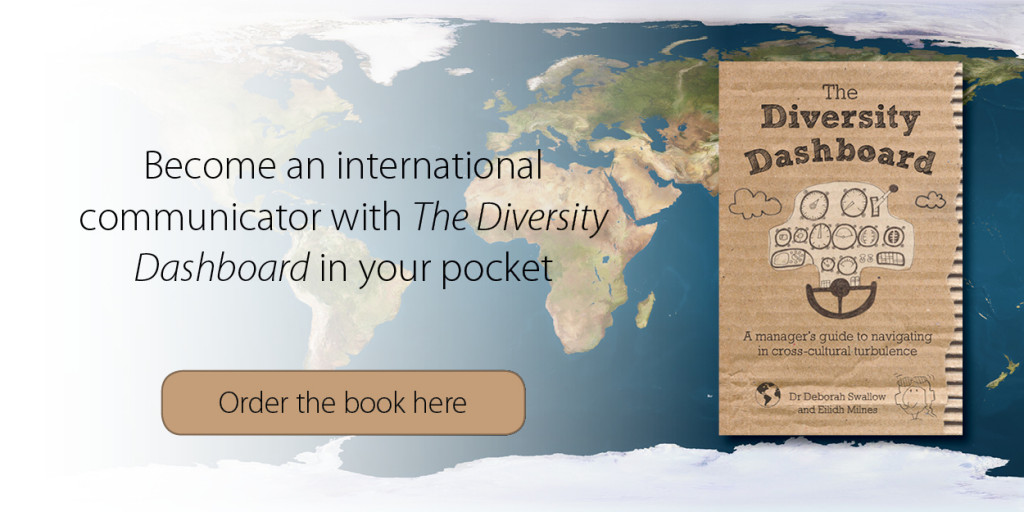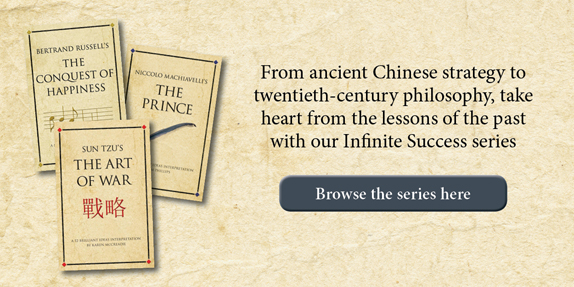Author Archives: Catherine Holdsworth
The meat dilemma
20 August 2014 by Catherine Holdsworth in Lifestyle
There are many differing theories on whether it is better to be a vegetarian or an omnivore, if red meat is better than chicken or whether we should all survive on nuts and seeds for the environment’s sake. In a recent Horizon for the BBC, Michael Mosley investigated the effect eating red and processed meats has on our health.
One thing the programme highlighted is that it is very difficult to get definitive information on diet from the media, which is keen to sell stories so often chooses the most dramatic outcomes from research. The result is that one day we’re told we need to eat meat to ensure we’re getting a healthy amount of protein and the next we’re told that sausages give us bowel cancer (we may be exaggerating a little here). In her book The corporate wellness bible, Kate Cook tries to help us through the confusion by taking us back to basics and explaining the importance not just of protein but also the other basic building blocks of food – carbohydrates and fats:
There are so many different diets and ways of eating that it’s no wonder we’re thoroughly confused. Eating for energy by controlling your blood sugar is probably best for handling stress and fuelling Wellness at work but to begin with here are some general nutritional guidelines. One minute vitamin C is good for you, the next it’s causing cancer. We all change to margarine, then lo and behold we’re told to change back to butter. Let’s try to make sense of it all. The food we eat can be divided up into three major ‘macro’ nutrient groups: carbohydrates, proteins and fats.
Curb the carbs?
The body uses carbohydrates (carbs) as its main fuel. Carbs can be divided into two types: ‘fast burning’ (junk food, processed food, honey, sweet foods) and ‘slow burning’ (whole grains, fresh fruit and veg, grains). The type of carbs you should curb are the fast-burning carbs because these will give you a surge of energy followed by a nasty crash. And avoid rocket-fuel carbohydrates such as white bread, white rice, cakes, biscuits and sugar. Complex carbohydrates usually have more fibre in them to slow down the way sugar is released into your system.
Perfect protein
Protein contains the building blocks (amino acids) that are used for making enzymes, hormones, antibodies and neurotransmitters as well as for repair of the body and for growth. Protein isn’t just about huge slabs of juicy steak. Vegetarian sources of protein are important to consider and include beans, tofu, quinoa (a type of seed) and lentils. Aim to eat plenty of vegetarian sources, which are less acid forming, and also consider some cheese and eggs, but not in excess. If you eat meat, have it no more than three times a week.
Fear of fat
A fear of fat has been drummed into us. Yet it’s only the wrong kind of fat we should be scared of, not good fats. There are two main types of fat: saturated fats (hard fat) and unsaturated fats. Saturated fats are not essential for the body to function. There are also two main categories of unsaturated fats: monounsaturated (olive oil is in this group) and polyunsaturated. Some polyunsaturated fats are good for your brain and generally make the body work efficiently. In fact, they’re known as essential fatty acids (EFAs) – the name speaks for itself. EFAs are destroyed by heat and light so, despite some manufacturers’ health claims, the benefits of these fats are likely to have been destroyed once foods are processed. Each day, supplement a pure fish oil or flax seed oil, and eat a good handful of nuts and seeds. And avoid too many saturated fats or the type of fats found in processed foods.
Breaking even or breaking bad: is your business the American Dream?
19 August 2014 by Catherine Holdsworth in Business and finance, Entertainment
The legend of the American Dream can be traced back as early as the first Europeans to settle the continent, recounting how they stepped off the Mayflower and started a new life in the Brave New World. The American Dream is what drove Europeans to board ships and make the perilous journey across the Atlantic in search of life, liberty and the pursuit of happiness.
Since the advent of the twentieth century, however, the American Dream has tended to represent the pursuit of wealth and capital, as portrayed in such classics as F. Scott Fitzgerald’s The Great Gatsby. America, more than any other country represents capitalism through its large corporations, and companies aiming to stake their claim in the market.
The American Dream in the twenty-first century is promoted as something achievable by all, as TV shows, advertising and reams of self-help articles urge Americans forward, with the promise of wealth, success and happiness if only they strive hard enough. In the TV series Breaking Bad, Walter White’s small but successful business grew into an empire, spiralling dangerously out of control. In the beginning, Walt had clear financial goals: to pay his medical bills and ensure his family’s financial stability after his death. However, with his stock growing at an exponential rate, Walt’s greed and desire for more cost him dearly.
It’s all very well to have millions in the bank and a yacht to holiday on but the danger of this is that one loses touch with reality. The advantage of a small business is that it’s easier to stay true to the ethos of what made the company successful and maintain excellent customer relations – key to the longevity of a business. In an age where word-of-mouth is as good a recommendation as any, and reputations can be destroyed with a tweet, it is essential that small businesses maintain their integrity.

Take, for example, Amazon, a ‘Fat Cat’ company that creates trouble for even moderately sized companies, such as Hachette. With the companies reaching a stalemate, their disagreement has had a knock-on effect on customers, who are now unable to buy books by the publisher on Amazon’s site. There are parallels between Amazon’s relatively swift rise from small bookseller to world-beating supplier of everything, and the success of Walt and Jesse’s meth business. First the Breaking Bad entrepreneurs made other dealers and suppliers redundant by supplying a better product and better service – Amazon built its business on great service and the best prices. Moving into bigger premises with an effective distribution model brought Walt and Jesse wealth but also enemies; once Walt and Jesse were ‘on the map’, they were hunted, not just by the police, but by rival dealers, desperate for blood. Amazon is still loved by customers, but from the other end of the supply chain there are many who despise its approach to business and would be glad to see the company brought low. Whether their dreams come true remains to be seen but if you do find yourself at the helm of a successful business you’d be wise to remember that reputation is all-important.
Essentially, Walt is a product of his environment. In a country reliant for its survival on commerce and the pursuit of wealth, Walt was faced with thousands of dollars worth of debt due to a low income and expensive health care; he would not have been in such a predicament had he lived in Canada or the UK. Thus his entrepreneurial spirit was ignited and he had no choice but to make quick and easy money. Nevertheless, as many small businesses have found out, quick money is not necessarily the key to a flourishing business and in that cut-throat, boom or bust world, burning out is a real risk. Though Amazon is a leader in the field of selling anything, offering a virtual department store at you fingertips, there is a growing backlash against the company with some consumers going out of their way to buy their products from somewhere else. Whatever the American Dream means to you, make sure you business is not compromised.
Top tips for doing business abroad
11 August 2014 by Catherine Holdsworth in Business and finance
There has been a rise in passenger numbers at Heathrow and Gatwick this summer. Although many of those extra passengers will be eager to start their summer holidays, evidence has suggested that more and more of us are doing business by travelling abroad. Even those of us who stay at home will have to start learning to communicate effectively across cultures as innovations like VOIP make it easier for any business to become global.
Dr Deborah Swallow and Eilidh Milnes’ book, The diversity dashboard has helpful tips to communicate effectively when visiting other cultures, offering examples of how to improve communication and get the most out of your business trip.
Here are just a couple of examples showing how insight into a culture can improve the way you do business in that culture.
Culture crash
One manager talking about his time in the Middle East explained, ‘Abdullah said to me, “Brian, I can make this happen for you. I have connections; I can pull strings and know who to ask…”’
Culture tip
As a functional Brit, Brian immediately thought, ‘I don’t like this. It is underhand, nepotism. I feel uncomfortable.’ However, he was to learn that it is the life-blood of business in the Middle East, where relationships matter above everything else.
Doing business with a culture more relationship-oriented than our own can feel time consuming. In such cultures, everything is connected to everything. Your prospective business partner may want to know about your family, your connections, the kinds of food you enjoy and even what you read. Business is done socially and at a much slower pace. People prefer plenty of time to build trust before getting down to business.
Obligations of mutual debt are very strong in such societies and are necessary to make things happen. Such obligations have no boundaries. The English phrase ‘you scratch my back and I’ll scratch yours’ describes this exactly. Mutual-debt societies exist in different forms all over the world. The Japanese nemawashi system and the Chinese guanxi relationships are forms of the mutual-debt society. However, in the Philippines, the debt or obligation is never absolved; it lasts a lifetime. Their term utang na loob means ‘sense of being indebted’.
Culture crash
Towards the end of a very pleasant lunch in Paris, Jean Gautier draws his British colleague, Peter Smith, aside and mentions that his teenage son is about to attend a summer school in Surrey in a few months’ time. Peter asks a few polite questions and leaves it at that. Two months later, Jean telephones to say his son is on his way and that he would appreciate it if Peter would see that his son is settling in. Peter is annoyed, thinking ‘What’s this got to do with me?’ However, one Saturday afternoon he takes his own teenage son to visit the young French lad. The boys find they have a passion for rugby in common and agree to keep in touch through Facebook.
Months later, Peter finds that his new reward and recognition initiative for Europe has been completely snubbed by the French. Françoise, the head of HR, has become implacable and won’t even return Peter’s calls. One day, to his utter amazement, he receives a call from Françoise asking if they could discuss his plans to see how they could adjust them to suit French working practices. When he remarks to a colleague how astounded he was that Françoise had eventually ‘seen sense’, he learns that Jean Gautier had had ‘a quiet word with her’. The time spent with the two teenagers had paid off.
Culture tip
Some societies, like the French, assume there are no boundaries in the business context. That ‘little request’ may well be for a personal or social favour to a business colleague, thus making business and social spheres overlap or mingle. France is a unique culture where people will only share things with you if you are part of the group. In France there is a network system; they call it les réseaux – réseaux meaning networks.
Breaking Bad: one product to rule them all
8 August 2014 by Catherine Holdsworth in Business and finance, Entertainment
The late Steve Jobs was quoted as saying, ‘Do not try to do everything. Do one thing well’. In Breaking Bad, Walter White said, ‘you asked me if I was in the meth business or the money business. Neither. I’m in the empire business’. There are many businesses that have achieved success even though they only offer one product: think of Coca Cola, for example. By dedicating one’s effort into the quality of a particular product or service rather than spreading yourself too thin, your business is more likely to thrive.
Walter White and Jesse Pinkman did just that. Their product was superior ‘blue’ crystal meth and it was due to hard work, creativity and commitment (and the odd well-placed explosive) that their business thrived when others around them folded. Here are the three key factors that worked for them:
- Branding: Walt and Jesse’s blue meth became legendary. Customers could easily identify the product alongside similar ones and associate the colour with the high quality. The colour helped improve brand awareness. Distinguish your business from others around you. What can you do that others can’t?
- Demand: there was an obvious demand for meth in Albuquerque, New Mexico. With its close proximity to the Mexican border, it was clear that there was a market for what Walt and Jesse were selling. Jesse, a meth user at the beginning of the series, is able to identify that Walt’s product is better than the competition. The two were fortunate enough to manufacture an addictive drug, one that keeps customers demanding more and therefore gives the market a better chance of growing. Identify a need or a weakness in your target market and there will always be people willing to buy your product. You too can help your business thrive by responding to demand. Offer excellent customer service (Walt and Jesse let their distributors keep a cut of their money and offered free ‘tasters’ to increase their customer-base) and your clients will remember that.
- Quality: Walt’s blue meth was famously 96% pure, better than all its competitors. Knowing that your product is better than that of the competition already gives your business a head start. However, to meet growing demand, Walt and Jesse soon realised that their small business was growing at an exponential rate. Not wishing to compromise on quality, it was imperative that they move their business to bigger premises (and fatefully team up with Gus Fring). A susprisingly large number of businesses fail by becoming too successful too fast. Be wary of your business growing too quickly; make sure you’re logistically prepared, adequately staffed and can cover the costs that a rise in demand brings.

Walt and Jesse’s small cooks in the camper van grew into an empire and at times they were not prepared to meet the demand. However, being business-savvy and exploiting their contacts and the market demands, they were able to flourish. Remember though, even the most powerful can fall. One could say that Walt and Jesse became too ambitious and greedy, letting their ’empire’ unravel in front of them. It was their small business that was the most successful, not the empire.
Cometh the hour, cometh the Boris
6 August 2014 by Catherine Holdsworth in Business and finance, Current events
Boris Johnson has just declared his intention to run for MP in the national election next year. While Londoners may breathe a sigh of relief that they will be losing their buffoonish Mayor, we can all close our eyes and hope, hope, hope that he doesn’t get voted in by the general public who, we presume, have more common sense than their wannabe future parliamentary representative. First comes MP, next step Prime Minister and the south of the UK will most likely be waging war against the north. Scotland: get out while you can!
Machiavelli has suggested that leaders are a product of their time, elected because the public need them to perform a certain role. Though it is hard to imagine any situation when we will need ol’ Boris to lead us, his reign may serve only to make us appreciate David Cameron all the more or fall for the un-PRable charms of Ed Milliband.
Tim Phillips’ book, The Prince discusses the right time to lead and the right time to stand back. If Boris really wants to hit the political heights perhaps he should study the lesson below.
If you achieve success, you’d like to think that you would have succeeded in any job in any company. Not true, Machiavelli points out. Leaders are usually successful because they’re right for the moment. ‘Rulers maintain themselves better if they owe little to luck,’ says Machiavelli, describing how a prince can maintain a kingdom he has won through arms and ability. But he’s defining luck closely. What he doesn’t consider to be luck is the combination of the right time and the drive to succeed that throws forward a ruler. Indeed, he considers the spark of frustration – which becomes inner drive – to be an important element when the opportunity arises.
So we have three things: potential, the right time in which to exercise that potential, and an inner force to succeed. It’s like this:
Talent + opportunity + drive = success
We often assume that talent alone is sufficient to make someone a success, or to make a tenure as a leader successful. Machiavelli says that you actually need to be the right sort of leader for the specific opportunity. History is written by winners, and so it is often written as a simple meritocracy – the right person just somehow floats to the top effortlessly and inevitably. But in any generation there are nearly-successes: those people who would have been successful at a different time, or with different challenges, or if they had just a little more of the right type of drive to meet those challenges.
The best example of the combination of talent, drive and timing in political history is probably Winston Churchill, a man who in any other time would have been remembered as a comparative failure. By the mid-1930s, Churchill’s best years were assumed to be behind him, and compared to the reach of his ambition they weren’t even that good. He was also considered to be a political opportunist and, in addition, his political views were well out of step with fashionable thinking. But when his country needed decisive leadership and a uniting force who was above party politics, he became prime minister in 1940 – at the age of sixty-five – and led Britain brilliantly in World War II.
Most political careers end in failure: bright stars who never seem to have quite the right opportunity; party loyalists whose party can’t get elected into government; talented meteors who make one gaffe that they never manage to shake off; number twos who don’t make it to the top job until it’s too late, or who don’t get there at all.
In politics, this is acted out nightly on the News. But we all know someone who didn’t quite make it, got stuck in the wrong job, or just lost their drive. You want to succeed? You need to find the right opportunity, not wait for it to come to you.
War: how does it all begin?
6 August 2014 by Catherine Holdsworth in Business and finance
By now you’ve probably all seen the impressive display of ceramic poppies at the Tower of London, commemorating all those who died in the First World War. Over the next four years there will be many more commemorations like the one on Monday, marking the outbreak of war one hundred years ago. Interestingly, in his speech on Monday Prince William remarked how, one hundred years later, old enemies, Britain and Germany, were joined together to remember. In the twenty-first century, the world looks to Gaza and Israel and wonders whether they will ever unite as old friends.

But how does it all begin? In this extract from Andrew Holmes’ book, Carl von Clausewitz’s On War, Holmes examines how conflicts emerge and how relatively minor day-to-day problems can easily escalate through lack of understanding about how the individual elements of a ‘system’ affect each other.
Although we like to believe that we can operate as an island, the truth is we are part of a wider system that controls us more than we could ever know. In many ways von Clausewitz was ahead of his time, but there was one area in particular where he was light years ahead: systems thinking. Although systems theory as we know it today had yet to be defined or articulated, von Clausewitz understood war was not an isolated act. In his view, opponents in war could not regard each other as abstract entities; they were part of a wider system that included individual behaviour as well as politics. As a result, it was a relatively straightforward process to understand and model the motives of a potential enemy; all you had to do was observe. And because war was part of a larger ‘system’, it rarely broke out spontaneously nor could it spread instantaneously.
A perfect example of this is the run-up to World War I, in which a series of interlocking pacts and agreements such as the Entente Cordiale between Great Britain and France created conditions for global conflict. All that was needed was the spark – conveniently provided by Gavrilo Princip when he shot Archduke Franz Ferdinand on 28 June 1914. And because of the interconnected nature of the pacts, no one could have stopped the war, had they wanted to.
The concept of systems theory within an organisational setting didn’t gain much traction until after the emergence of information technology (IT). IT provided the glue that connected not only the different functions within a business but individual companies, too. For example, our global finance system would not exist without the sophisticated trading platforms that tie investment and retail banks, central banks and trading floors across the world into a seamless whole. Wal-Mart too would not be able to hold down its prices in the way that it does without a global supply chain management system that tracks absolutely everything. Indeed, every business, even small ones, depend on IT and when you roll this up to the country or continental level, it is safe to say few businesses could be considered isolated. Each and every one is connected to all others, directly through trading relationships or indirectly via market forces and competition. Whether we like it or not, we are all part of a system and it’s a good idea to understand how we are impacted by it; also how we can influence it. To do so requires a basic understanding of systems dynamics and systems thinking in which it is possible to model the various components and the interactions between them. Once you get the hang of it, systems thinking lets you model feedback loops and gain an understanding of how your business interacts with the wider markets in which it operates. It’s great stuff!
How your actions impact on others
How do your decisions impact on others? Sometimes we don’t know and this leads to unintended consequences and surprises. When making a decision, see how it affects other parts of the business and determine if the results are what you expect. If not, consider how you might change the decision to have a more effective outcome.




